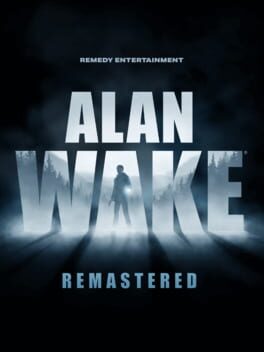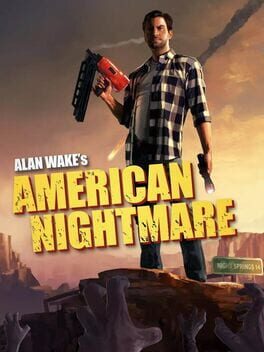

Saga Anderson arrives to investigate ritualistic murders in a small town. Alan Wake pens a dark story to shape the reality around him. These two heroes are somehow connected. Can they become the heroes they need to be?
Also in series
Reviews View More
this is the combination of everything i love as a remedy fan building up for one epic game, the fan service, the charming characters, the references. it got it all, also has prb some of the greatest acting ive seen in a game. props to david harewood, ilka , mathew and ofc rest in peace you goat james mccafrey thanks for all the memories.
This review contains spoilers
Where to start...... Alan Wake 2 has to be one of my all-time favorite games.
What Remedy did with AW2 is a phenomenal achievement not just in video gaming but in writing, storytelling and a massive advancement within the medium. I have waited 13 years for AW2 and it did not disappoint me at any point within the game. The way Saga and Alan's story weave between each other and how it all comes together at the end is something I haven't seen done this well in a game, the closet I could somewhat compare this story would be to Bioshock Infinite.
The sound design throughout AW2 is top notice, The graphics in AW2 go above and beyond with the scenery and setting of Bright falls it has never looked more beautiful. The acting whether that be in game engine or the live action moments within the game are very well done and the way Remedy blend both live and game together is like no other, they truly have crafted a fantastic style of storytelling that I can't wait to see what they do next after this advancement.
The Northlight engine works flawlessly with face capture, graphics or even when Alan is in the dark place and change the scenes with the light (which is a fantastic idea that they pull of perfectly)
As you can tell from my review I love this game. Alan Wake 2 has made its way into my top 10 games of all time.
This game proves Remedy is a masterclass in gaming and is one of the greatest of all time. I will buy and play anything they make. I could not recommend this game more.
What Remedy did with AW2 is a phenomenal achievement not just in video gaming but in writing, storytelling and a massive advancement within the medium. I have waited 13 years for AW2 and it did not disappoint me at any point within the game. The way Saga and Alan's story weave between each other and how it all comes together at the end is something I haven't seen done this well in a game, the closet I could somewhat compare this story would be to Bioshock Infinite.
The sound design throughout AW2 is top notice, The graphics in AW2 go above and beyond with the scenery and setting of Bright falls it has never looked more beautiful. The acting whether that be in game engine or the live action moments within the game are very well done and the way Remedy blend both live and game together is like no other, they truly have crafted a fantastic style of storytelling that I can't wait to see what they do next after this advancement.
The Northlight engine works flawlessly with face capture, graphics or even when Alan is in the dark place and change the scenes with the light (which is a fantastic idea that they pull of perfectly)
As you can tell from my review I love this game. Alan Wake 2 has made its way into my top 10 games of all time.
This game proves Remedy is a masterclass in gaming and is one of the greatest of all time. I will buy and play anything they make. I could not recommend this game more.



